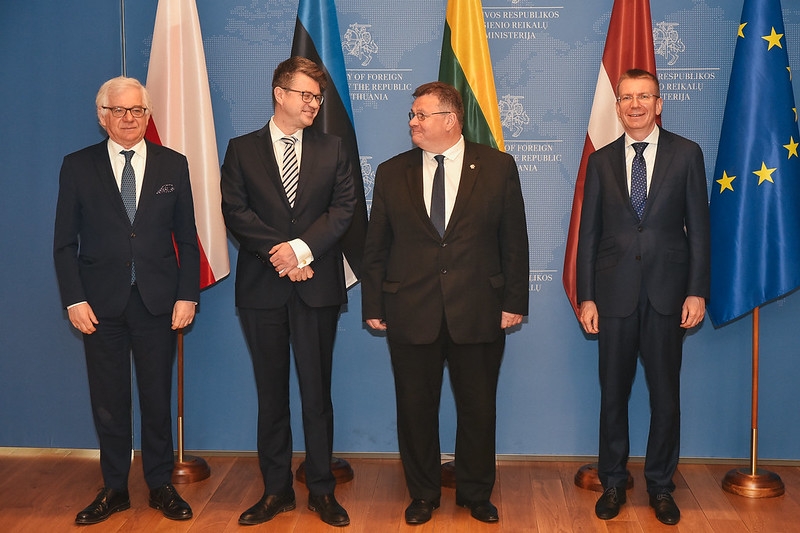On 15 June 2020, Foreign Minister Edgars Rinkēvičs met in Vilnius with the Lithuanian, Estonian, and Polish Foreign Ministers, to talk about cooperation between the Baltic States and Poland, including with respect to ongoing discussions in the EU on COVID-19 and questions about opening the EU's outer border, as well as issues related to security policy, and cooperation with the USA.
Minister Rinkēvičs expressed confidence that by opening travel to the common area of the Baltic States, all three Baltic States have provided a positive example of regional coordination and mutual trust. The Latvian Foreign Minister praised the Polish decision to open its borders to EU nations and to resume international flights.
Today, it's been exactly a month since we opened the common internal borders of the Baltic States, the Latvian Foreign Minister said. We have successfully coordinated our cooperation, by meeting regularly in Riga, Tallinn, and in Vilnius today. It's important to continue our close and effective cooperation and coordination. We will have to co-exist with COVID-19 yet for a while, and so we must not lose attention in our vigilance and we must continue being prudent. Unity and cooperation play a pivotal role, as well as working closely and jointly, and exchanging information in real-time.
Minister Rinkēvičs drew attention to the fact that at the moment the EU has two very important and basic tasks, seizing the opportunity to return to normalcy and regular life which includes the aspects of a functioning common market and free movement of people within the Schengen area, while at the same time promoting economic recovery. The Latvian Foreign Minister said, we have to maintain our close coordination with the EU in the gradual lifting of restrictions. We have to continue our close coordination with the EU on lifting the restrictions. We're proud of being a good example, which is something we could show together with the other Baltic States, becoming the first countries in the region to renew free movement. But opening the EU's external borders is something which should be done incrementally taking into account the epidemiological situation in third countries, and based on reliable sources that can be verified.
Minister Rinkēvičs directed attention to the annual remembrance of victims of the communist mass killings and genocide, of the thousands upon thousands of innocent victims that were deported and lost their lives under Stalin's regime. The Russian Federation's revisionist approach to this history is regrettable, and unacceptable especially with regard to World War II, he said. We applaud the triumph over the Nazis and we mourn their victims, and we would also never be able to explain or justify the crimes and atrocities committed by the Soviet Union and its totalitarian regime, he said.
For example, the draft legislation presented by a member of the Russian State Duma to revoke the 24 December 1989 resolution of the USSR’s Congress of People's Deputies condemning the Molotov-Ribbentrop Pact, is yet another example of the Russian Federation attempting to justify the criminal acts committed under the totalitarian Stalinist regime. Such rhetoric and revisionism with regard to history is not acceptable to us and it never will be.
Together with colleagues from Estonia, Lithuania, and Poland, the Latvian Foreign Minister also took part in a virtual meeting of the EU Foreign Affairs Council. The Secretary of State of the United States of America, Mike Pompeo, also participated, talking with the EU Foreign Ministers on the main questions of the EU-U.S. agenda.





